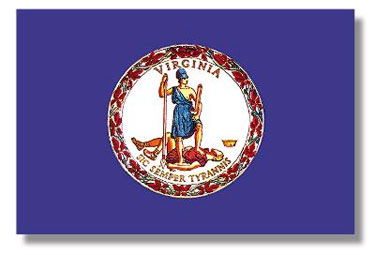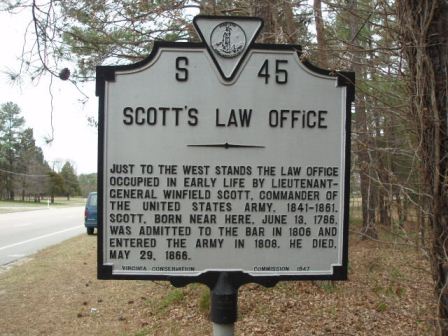Interesting Opinion on Lawyer Contingency Fees … And Proof that no good deed goes unpunished.
An interesting opinion was issued a few days ago in the U.S. District Court for the District of New Jersey concerning contingency fees and the fee-shifting provisions of the federal False Claims Act. There are very few such published opinions because issues related to retainer agreements between whistleblower lawyers and whistleblowers are normally seen as matters of contract, and thus typically decided under state law, so the opinion makes interesting reading for that fact alone.
It is also interesting because it goes to show that no good deed goes unpunished — Marc Raspanti, who is by any measure one of the best qui tam lawyers out there, delivered an excellent result for his client, then vountarily lowered his fee; the result was a challenge to that same fee by what appears to be a rather ungrateful client. More on that in a minute….
The underlying qui tam case was filed on behalf of the relator — one Dr. DePace — in 2008 by Mark Raspanti. The Complaint alleged that the defendant hospital paid millions of dollars in illegal kickbacks to physicians to induce them to refer patients to Cooper Health Systems for expensive in-patient and out-patient cardiac services, in violation of the federal False Claims Act and the New Jersey False Claims Act.
The retainer agreement between Dr. DePace and Raspanti
Prior to filing, of course, Raspanti (like any smart, ethical lawyer) entered into a written retainer agreement providing for a contingency-fee. That agreement clearly provided that in the event the case was unsuccessful, Raspanti and his firm would not be entitled to a fee; alternatively, if the case was successful, Raspanti and his firm would be entitled to a contingency fee equal to 40% of the relator’s recovery, plus statutory attorney’s fees, which are mandatory under 31 U.S.C. § 3730(d).
This was made clear in the language of the retainer agreement, which provided as follows:
If there is a judgment, settlement or arbitration award, the Federal and state False Claims Act statutes provide that attorney’s fees and costs may be paid by the defendants (“Statutory Attorneys’ Fees and Costs”). This is in addition to any Attorney’s Contingency Fees we may receive pursuant to Paragraph 6B of this Agreement.
This is all very typical in FCA/qui tam cases. The 40% portion of the relator’s share was justified, in part, because Raspanti and his firm needed local counsel in order to prosecute the case. The FCA also has a mandatory fee-shifting provision which requires defendants to pay the hourly rates of relator’s counsel. I do not know of any state bar that allows lawyers to share attorney’s fees with non-lawyers, and so the client is not allowed to share in the hourly fees recovered by his or her counsel.
So far so good — then, in 2013 the Department of Justice (and the state of New Jersey) intervened in the case, and simultaneously announced a total settlement in excess of $12.5 million. Thus, Raspanti and his firm delivered on the first and foremost objective of any lawyer representing a qui tam relator — they convinced the government to intervene in the case. Raspanti delivered on a second major objective as well — out of the money received from Cooper Health, the United States agreed to pay Dr. DePace $1,951,110.00 and New Jersey agreed to pay Dr. DePace $442,890.00. That is a total relator’s share of 20%, which I am certain Raspanti had to fight tooth and nail to get for his client.
Finally, as part of the settlement agreement, Cooper agreed to pay Dr. DePace’s counsel $430,000 for expenses, attorneys’ fees, and costs. Specifically, the Settlement Agreement stated that “Cooper agrees to pay Relator’s Counsel, and Relator’s Counsel agree to accept as full payment $430,000 for expenses, and attorney’s fees and costs in accordance with subsection 3730(d)(1).” In an invoice detailing all the hours spent by the Pietragallo Firm on this case sent by the Pietragallo Firm to counsel for Cooper shortly prior to settlement, the Pietragallo Firm represented its total fees and costs to be $458,420.55.
Raspanti then did the correct thing and prepared a distribution memo explaining all of the above, and he circulated that to his client. And then, once Raspanti had delivered such a great result for his client, everything went south.
Hell hath no fury like a problematic client
Dr. DePace disputed the fee award to Raspanti, on the basis that the settlement agreement — which provided that Raspanti had received $430,000 paid for his hourly rate and his costs — trumped the retainer agreement between Dr. DePace and Raspanti.
Yes, you read that right. Dr. DePace took the untenable position that the settlement agreement in the case superceeded the retainer agreement between him and Raspanti, and so Raspanti was entitled to nothing more than the $430,000 he received for his attorney’s fees and costs … and if any of the lawyers reading this are thinking that this smacks of a non-lawyer’s attempt to practice law using his or her limited knowledge, I think you are exactly right.
Clearly, Dr. DePace thought he had found an “A-ha!” moment of the kind that all laypersons just LOVE…but he was sorely mistaken. The opinion notes that Dr. DePace prevailed on his “personal lawyer” (previously he had insisted that his personal lawyer serve as Raspanti’s local counsel) because that lawyer renounced his entitlement to the one-quarter contingency of the 40% contingency fee to which he was entitled. Meaning, Raspanti’s 40% share of the relator’s portion was to be split between local counsel and Raspanti with 1/4 going to local counsel.
And, as an aside, I can tell you that in my experience, 100% of the clients who refuse to deal with a lawyer without going through their own “personal lawyer” are going to be ungrateful, problematic clients. I mean, who has such a guilty, suspicious nature that they can’t even talk to their own lawyer?
Raspanti then did the right thing — when the “personal lawyer” refused to accept one-fourth of the contingency fee, Raspanti gave that back to Dr. DePace, with the result that Dr. DePace received 70% of the relator’s share, and Raspanti received 30%. But no good deed goes unpunished, as the title to this post indicates, and Dr. DePace then disputed the rest of Raspanti’s fee, as noted above.
In addition to arguing that the Settlement Agreement superseded the Contingency Fee Agreement, Dr. DePace argued that the fee shifting provisions of the Federal False Claims Act do not permit an attorney to recover both a contingent fee and statutory attorneys’ fees. This argument fared no better than his other arguments and was in my opinion the further work of a non-lawyer mind.
DePace also argued that he should not have to pay the contingency portion of the fee because New Jersey Rule of Professional Conduct 1.5 states that “a lawyer’s fee shall be reasonable.” In this regard, the New Jersey Rule is identical to Virginia Bar’s rule of professional conduct 1.5. The Court also found this argument to lack merit.
I encourage everyone with an interest in qui tam litigation, legal ethics or lawyer fee agreements to read the opinion.

